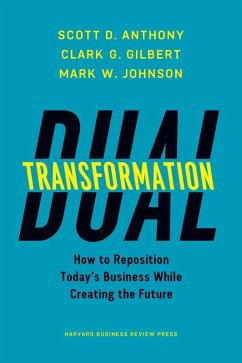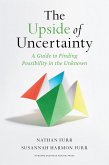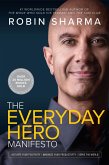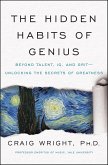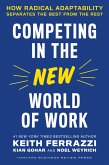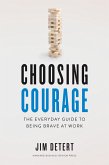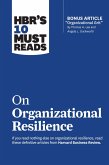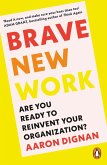Game-changing disruptions will likely unfold on your watch. Be ready.
In Dual Transformation, Scott Anthony, Clark Gilbert, and Mark Johnson propose a practical and sustainable approach to one of the greatest challenges facing leaders today: transforming your business in the face of imminent disruption. Dual Transformation shows you how your company can come out of a market shift stronger and more profitable, because the threat of disruption is also the greatest opportunity a leadership team will ever face. Disruptive change opens a window of opportunity to create massive new markets. It is the moment when a market also-ran can become a market leader. It is the moment when business legacies are created.
That moment starts with the core dual transformation framework:
Transformation A: Repositioning today's business to maximize its resilience, such as how Adobe boldly shifted from selling packaged software to providing software as a service. Transformation B: Creating a new growth engine, such as how Amazon became the world's largest provider of cloud computing services. Capabilities link: Fighting unfairly by taking advantage of difficult-to-replicate assets without succumbing to the "sucking sound of the core." Anthony, Gilbert, and Johnson also address the characteristics leaders must embrace: courage, clarity, curiosity, and conviction. Without them, dual transformation efforts can founder.
Building on lessons from diverse companies, such as Adobe, Manila Water, and Netflix, and a case study from Gilbert's firsthand experience transforming his own media and publishing company, Dual Transformation will guide executives through the journey of creating the next version of themselves, allowing them to own the future rather than be disrupted by it.
In Dual Transformation, Scott Anthony, Clark Gilbert, and Mark Johnson propose a practical and sustainable approach to one of the greatest challenges facing leaders today: transforming your business in the face of imminent disruption. Dual Transformation shows you how your company can come out of a market shift stronger and more profitable, because the threat of disruption is also the greatest opportunity a leadership team will ever face. Disruptive change opens a window of opportunity to create massive new markets. It is the moment when a market also-ran can become a market leader. It is the moment when business legacies are created.
That moment starts with the core dual transformation framework:
Building on lessons from diverse companies, such as Adobe, Manila Water, and Netflix, and a case study from Gilbert's firsthand experience transforming his own media and publishing company, Dual Transformation will guide executives through the journey of creating the next version of themselves, allowing them to own the future rather than be disrupted by it.
Dieser Download kann aus rechtlichen Gründen nur mit Rechnungsadresse in A, D ausgeliefert werden.
"A book you mustn't miss! [The authors] show how successful strategic transformations are founded on highly precise models and draw up a list of the leadership skills that are required in order to succeed in such transformations: courage, clarity, curiosity and conviction." -- BusinessDigest
Today's leaders speak to the challenges of Dual Transformation
Mark Bertolini, Chairman and CEO, Aetna--
"Your top leaders have to be aligned around the long-term vision and the assumptions about the future that underpin it. But you also have to change the nature of the dialogue with them, away from one about certainty and predictability, and toward one about assumptions, managing risks, and 'what you have to believe' for a certain course of action to be the best one. This is a significant shift for even the most successful leaders, and some might not be able to make it. You can't expect everyone to evolve at the same pace, but you have to see progress. For me this means being 'realistically expectant' and 'patiently tolerant of progress.'"
Mark Fields, President and CEO, Ford--
"Transformation is uncomfortable and exciting at the same time. It's like when we redesign an F-150 or the Mustang. You hold these two things in your head where you feel incredible pride and excitement because you're working on this icon, but gosh, you don't want to be the team that screws it up. It's the tension that comes from holding two conflicting thoughts in the mind at the same time."
Helen Eaton, CEO, Settlement Music School--
"Transformation is a roller coaster ride. You have moments of great highs and lows, moments where you are certain about what you are doing, and moments where you question deeply. It is never easy. If it were easy, everyone would be doing it."
Gerry Ablaza, President and CEO, Manila Water--
"I think we have--or at least we've started--to develop a mindset that we need to embrace change if we are to grow. We need to be a different business if we are to create shareholder value."
Michael Crow, President, Arizona State University--
"Communication is a big deal in changing any culture. Culture trumps strategy every day of the week. . . . We have been able to constantly give the message that we are here to measure ourselves against the success of our students. You have to constantly project those messages or you can't change the culture."
Today's leaders speak to the challenges of Dual Transformation
Mark Bertolini, Chairman and CEO, Aetna--
"Your top leaders have to be aligned around the long-term vision and the assumptions about the future that underpin it. But you also have to change the nature of the dialogue with them, away from one about certainty and predictability, and toward one about assumptions, managing risks, and 'what you have to believe' for a certain course of action to be the best one. This is a significant shift for even the most successful leaders, and some might not be able to make it. You can't expect everyone to evolve at the same pace, but you have to see progress. For me this means being 'realistically expectant' and 'patiently tolerant of progress.'"
Mark Fields, President and CEO, Ford--
"Transformation is uncomfortable and exciting at the same time. It's like when we redesign an F-150 or the Mustang. You hold these two things in your head where you feel incredible pride and excitement because you're working on this icon, but gosh, you don't want to be the team that screws it up. It's the tension that comes from holding two conflicting thoughts in the mind at the same time."
Helen Eaton, CEO, Settlement Music School--
"Transformation is a roller coaster ride. You have moments of great highs and lows, moments where you are certain about what you are doing, and moments where you question deeply. It is never easy. If it were easy, everyone would be doing it."
Gerry Ablaza, President and CEO, Manila Water--
"I think we have--or at least we've started--to develop a mindset that we need to embrace change if we are to grow. We need to be a different business if we are to create shareholder value."
Michael Crow, President, Arizona State University--
"Communication is a big deal in changing any culture. Culture trumps strategy every day of the week. . . . We have been able to constantly give the message that we are here to measure ourselves against the success of our students. You have to constantly project those messages or you can't change the culture."

